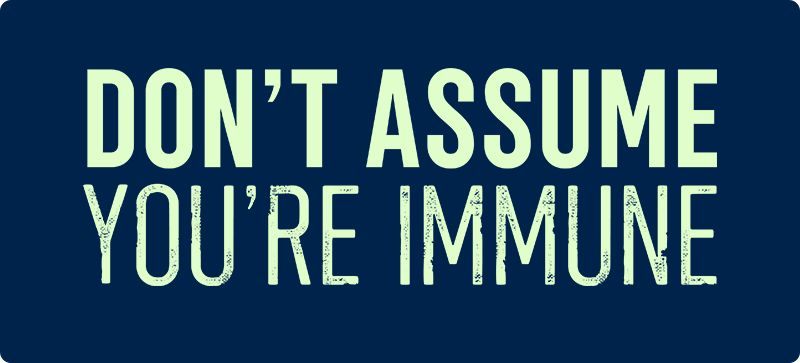

Measles is a highly infectious disease and one of the most easily spread infections.
Simply being in the same room as someone with measles can result in transmission.
Measles is rare in Australia due to immunisation programs, but cases can still occur. In WA, recent cases were from people returning with the virus from overseas travel.
Measles is usually spread through air-borne droplets, when a person breathes in the measles virus that has been coughed or sneezed into the air by an infectious person. It can also be spread through direct contact with the mucous membranes of an infected person, and by touching articles freshly soiled with the mucous and saliva of an infected person.
The first symptoms of measles are fever, tiredness, runny nose, cough, white spots in the mouth and sore red eyes. These symptoms usually last for a few days before a red blotchy rash appears.
Up to one-third of people infected with measles will experience a complication. This can include ear infections, diarrhoea and pneumonia, and in some cases hospitalisation. About 1 in every 1000 people with measles develops encephalitis (swelling of the brain).
Measles can have serious complications for pregnant women and their babies such as, miscarriage, early labour and stillbirth.
Measles is common in many countries outside of Australia. It is a highly contagious virus that can be life-threatening.
People who haven’t been fully vaccinated and are travelling overseas are at increased risk of infection because measles is common in many countries outside of Australia. Recent cases in WA were traced back to people who travelled overseas.
You can be immunised for measles with the combination measles mumps rubella (MMR) vaccine.
The MMR vaccine is recommended for:
In WA, you can get measles immunisations from your:
It is recommended you receive two doses of the measles mumps rubella (MMR) vaccine (at least 1 month apart) for full protection against measles. Children are recommended to receive the MMR vaccine at 12 and 18 months through the National Immunisation Program. If you were born after 1965, and haven’t already had two doses of the measles, mumps, rubella (MMR) vaccine, you are eligible for two free vaccines to make sure you are fully protected (consultation fees may apply).
Refer to the WA Immunisation Schedule or speak to a health professional for more information.

Find more information about the measles including where to get vaccinated in WA